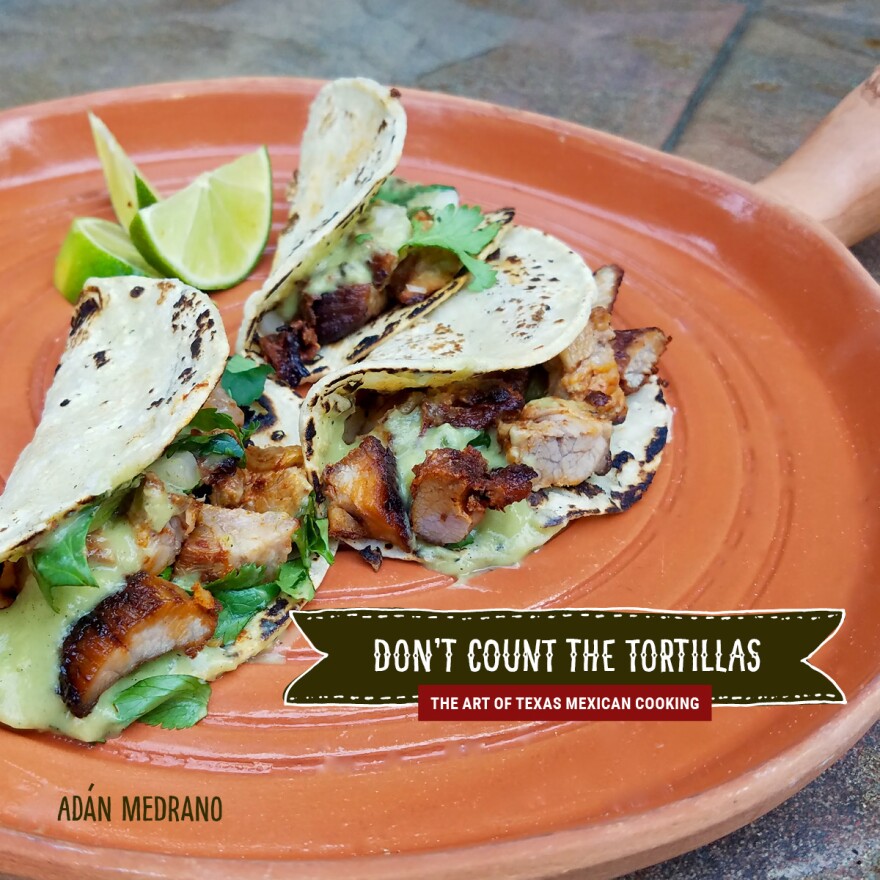San Antonio native and chef Adán Medrano is author of “Don’t Count the Tortillas: The Art of Texas Mexican Cooking” (June 25, 2019, Texas Tech University Press).
The recipes in his book draw on authentic Mexican ingredients that make an emotional connection with him. It’s what he calls Texas Mexican cuisine.
When asked if there’s a favorite recipe in his book, he says it’s like being asked, “Who’s your favorite child?”
Medrano is fond of marranitos, a baked, soft pig-shaped cookie found in many Mexican bakeries.
He said the recipe in his book came with many trials and errors to get the taste that matched the one he remembered.
“I'm sure I baked it 12 times to get the right texture,” Medrano said. “I use bread flour instead of all-purpose flour because it makes the cookie more spongy. And for the flavoring most people think it's ginger, but there is no ginger in marranitos. The flavoring comes from piloncillo, and so my recipe has piloncillo, a little bit of star anise and black pepper. And the combination of these three really makes a beautiful love taste that I remember and my body remembers.”

Medrano also recommends his tacos suaves de picadillo, which are soft picadillo tacos made of ground beef, tomato, onion and other ingredients.
“Those are delicious,” Medrano said. “I soak the tortillas in a beef broth that is flavored really richly with the trinity [of] Texas-Mexican spices. In Texas-Mexican cooking, in the cooking of Mexican-American families on the West Side, South Side San Antonio, you have this trinity: it's [cumin], black pepper and ajo, garlic. Those three, formed into a paste in a molcajete (a mortar and pestle made of volcanic rock), become the distinctive flavor of the Texas-Mexican cooking of Mexican-American families.”
Medrano said he immerses the tortillas in the flavorful broth before stuffing and rolling them. “And there's no fat. There's no frying, and they're delicious,” he said. “You top it off with a little bit of salad. Real nice thin stripes of iceberg lettuce and diced red tomatoes. It's delicious.”

Most people who learned to make enchiladas, including me, briefly fry the tortillas before dipping them in sauce. Medrano said that’s a step we can skip. He said the point of soaking tortillas in the broth is to make them soft and pliable.
“When you talk about enchiladas, you can compare them to two other tortilla dishes: entomatadas and enfrijoladas ... In each of those three, you take a tortilla and you submerge it, you immerse it, into a broth or a sauce of either chili or tomatoes or beans. You dip them in there until they become saturated.”
Medrano said the cheesy, slightly fried Tex-Mex version of enchiladas is not truly authentic. “Frying is not indigenous to us,” he said. “It's a new technique. And so when you dip the tortilla to make enchiladas into oil first to soften it. That's new because we did not do that. All of the use of lard is new. Keep in mind that the pigs arrived in the 1600s. Before that, we didn't have pigs, and so the use of lard and frying is a very new technique to us as a result of colonization.”
Medrano said skip the oil. “I would rather you pass (the tortillas) through the chile which will soften it just the way the oil does. But it also adds all of this flavor and makes it a real enchilada... Try it. It's just wonderful.”
Norma Martinez can be reached at Norma@TPR.org and on Twitter at @NormDog1.
Lauren Terrazas can be reached at Lauren@TPR.org and on Twitter at @terrazas_lauren.





